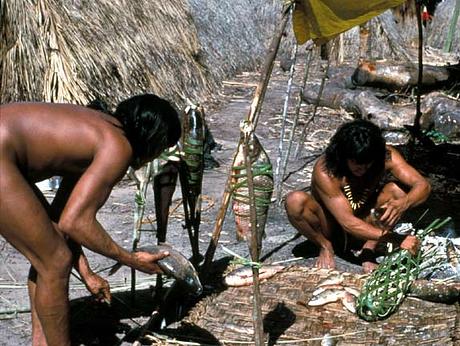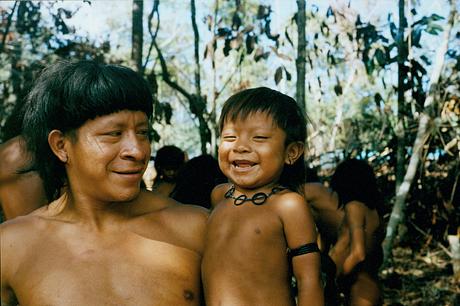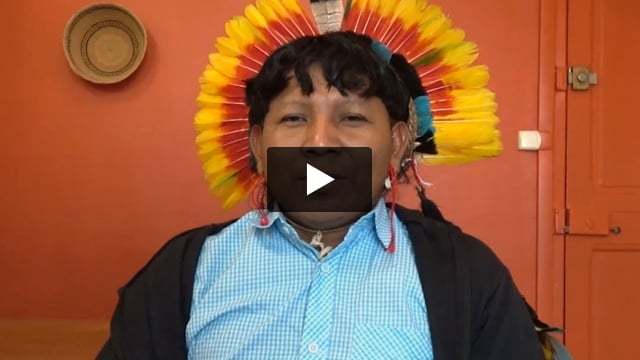Indian fishing ritual recognized as cultural heritage in Brazil
June 4, 2010

This page was last updated in 2010 and may contain language which is now outdated.
Yãkwa, one of the most important rituals practiced by the Enawene Nawe Indians, has been officially recognized as part of Brazil’s historic and cultural heritage by Brazil’s Ministry of Culture.
Yãkwa lasts four months and is the longest Indigenous ritual in Brazilian Amazonia. The Enawene Nawe build intricate wooden dams across tributaries of the Juruena river to trap large quantities of fish. They camp in the forest, smoke the caught fish in specially built smoke-houses and then send them back to the village by canoe.
When the men and boys arrive back from the fishing camps, food is ritually exchanged with the spirit world in elaborate ceremonies.
Two NGOs – OPAN (Native Amazon Operation) and Video in the Villages – documented the ritual on film which will be released shortly.
The government’s recognition of Yãkwa comes at a critical time – the ritual is threatened by the disappearance of the fish in the Juruena river.
Last year, for the first time, the ritual could not be practiced as normal, because the fish disappeared. It is thought that this was due to a change in rain patterns, and the effects of the ongoing construction of a complex of hydroelectric dams on the Juruena river.
Fish are an essential part of the Enawene Nawe’s diet as they do not eat meat. Under pressure from the Indians who faced a catastrophic food shortage, the government made the dam construction company buy three thousand kilos of farmed fish for the tribe last year.
Lack of fish also meant the crucial ritual exchange of fish for the spirits could not be performed, causing much consternation among the tribe.
Juliana de Almeida of OPAN, who works closely with the Enawene Nawe, said, ‘The Indians go out to fish and they return complaining that there is no fish and that the river water is very dirty’.
The construction of dams on the Juruena river is a source of conflict between the Indians, the construction companies and the government of Mato Grosso state.
In October 2008, 120 Enawene Nawe occupied and shut down the site of one of the dams.




